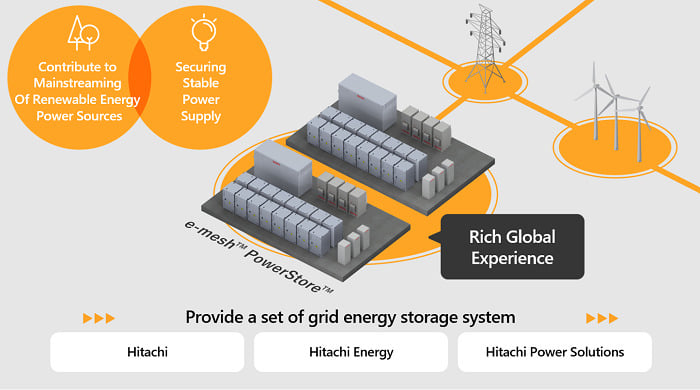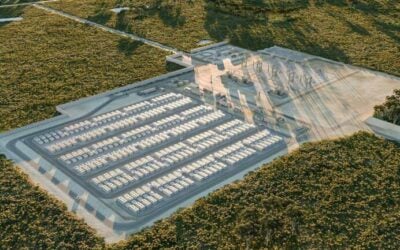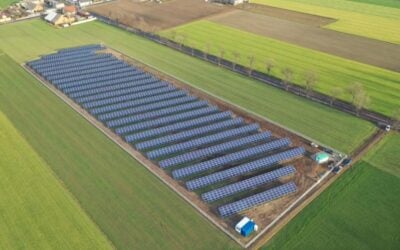
Construction is set to begin on a battery storage project in Japan through a joint venture (JV) involving CATL with utility Shikoku Electric Power.
China-headquartered CATL – the world’s largest lithium-ion battery manufacturer – is in a JV with global energy and commodities trader Hartree Partners and metals and mining-focused private equity firm Cathay Fortune Corporation, called CHC Global.
Enjoy 12 months of exclusive analysis
- Regular insight and analysis of the industry’s biggest developments
- In-depth interviews with the industry’s leading figures
- Annual digital subscription to the PV Tech Power journal
- Discounts on Solar Media’s portfolio of events, in-person and virtual
CHC Global’s local subsidiary, CHC Japan, has in turn started a new JV focused on developing and operating energy storage system (ESS) facilities with Shikoku Electric Power. The utility is responsible for providing electricity on Shikoku, an island just southwest of the major cities of Osaka and Kobe.
Shikoku houses four prefectures, and while the smallest of Japan’s five main islands, is still home to more than 3.5 million people. The CHC Japan-Shikoku Electric Power JV will bring the island its first-ever grid-scale battery energy storage system (BESS).
The companies announced the formation of their JV, called Matsuyama Mikan Energy in mid-June. It will install a 12MW/35.8MWh BESS in Matsuyama City, part of Shikoku’s Ehime Prefecture.
This morning (7 August), technology company Hitachi said it has been selected to provide the Matsuyama project’s BESS as well as the digital platform for its control, data acquisition, energy management system (EMS), and monitoring.
Hitachi subsidiary Hitachi Energy, which was formed after the Japanese company bought out its partner ABB’s stake in the Hitachi-ABB Power Grids business a couple of years ago, will supply its Powerstore BESS solution, and its e-Mesh digital platform.
Construction begins this month, and the BESS should enter commercial operation in the 2025 fiscal year.
Japan’s energy storage market potential blossoming
The BESS will be sited adjacently to an existing Shikoku Electric Power large-scale solar PV plant. According to the partners, it will be used to reduce curtailment of output from solar generation in the local area, storing excess energy during off-peak hours and discharging to the grid during peaks.
It will also add flexibility to help stabilise the grid, while contributing to its decarbonisation. Japan is targeting net zero emissions from its economy by 2050, with an interim target of getting to between 36% and 38% renewable energy on the grid by 2030.
To get to that target, the Japanese government has recently re-prioritised its focus on decarbonisation of the power sector to include energy storage as well as renewable energy generation. That means promoting the use of energy storage to integrate the output of variable renewable energy (VRE) generation, from preventing curtailment when VRE supply exceeds demand, to balancing out the impact of fluctuations in generation output.
CATL, its CHC Japan partners and Shikoku Electric Power become the latest big names to spot the potential for a battery storage market in Japan: last week, Idemitsu Kosan, the country’s biggest petroleum producer, announced its first lithium-ion (Li-ion) BESS project, preceded a few days before by utility Sala Energy ordering a 69.6MWh sodium-sulfur (NAS) battery storage system.
In June, the first-ever energy trades made from grid-scale battery storage assets occurred after developer Pacifico Energy entered two 2MW/8MWh assets into the JPEX spot market. Pacifico Energy is ranked as Japan’s biggest solar developer, while another major developer in the country, Eurus Energy, is currently building its own first grid-scale BESS.
Other major Japanese corporates, many of which have become well-versed in the BESS market internationally after investing in projects abroad in the US, UK and European mainland, have also turned their attentions to the domestic market.
Conglomerate Itochu and utility Osaka Gas recently embarked on an initial 11MW project together, while carmaker Toyota and yet another utility, Tokyo Electric Power, are working on a second life BESS project at a wind farm.
In addition to making major regulatory changes, such as allowing standalone energy storage assets to participate in energy trading, the Japanese government has introduced a subsidy scheme to support energy storage projects. The Matsuyama project is among 15 in total that received subsidy agreements through a round of competitive solicitiations.






